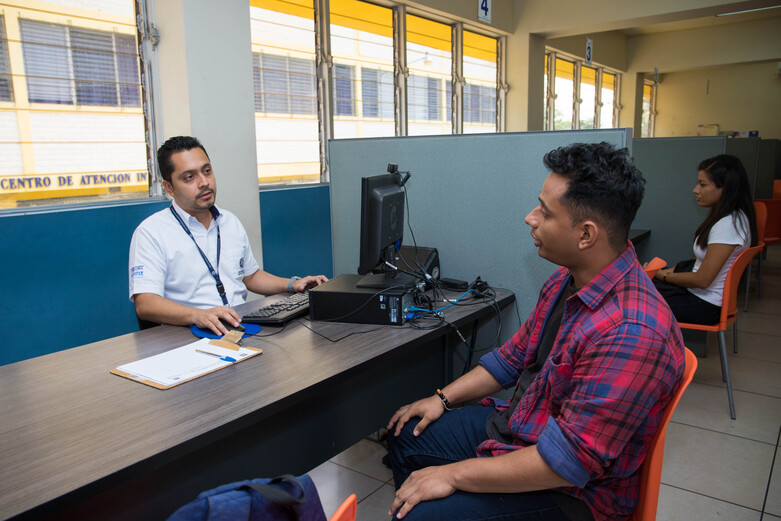Improving human rights protection for migrants in Central America
Human rights-based migration governance in Central America
 © GIZ / Francisco José Morales Rodríguez
© GIZ / Francisco José Morales Rodríguez
Human rights-based migration governance in Central America

German Federal Ministry for Economic Cooperation and Development (BMZ)

Region of the Central American Integration System (Sistema de la Integración Centroamericana, SICA) focusing on Costa Rica and Panama
Region of the Central American Integration System (Sistema de la Integración Centroamericana, SICA) focusing on Costa Rica and Panama

Central America, General Secretariat of the Central American Integration System (Secretaría General del Sistema de Integración Centroamericana, SG-SICA)
Central America - General Secretariat of the Central American Integration System (Secretaría General del Sistema de Integración Centroamericana, SG-SICA)

2025 to 2028

General Secretariat of the Central American Integration System (Secretaría de la Integración Social Centroamericana
General Secretariat of the Central American Integration System (Secretaría de la Integración Social Centroamericana, SISCA)

Social development
There are many migrants and displaced people in Central America, most of whom come from South America, and there are also a large number of people who have been displaced internally within individual countries and the region as a whole. In Costa Rica, for example, an increasing number of people have been arriving from Nicaragua. The Costa Rican Government has declared a state of emergency due to the situation.
Migrants and displaced people are often exposed to crime, abuse, fraud and violence such as rape. Basic public services such as food and health care are also generally unavailable to them.
Regional declarations from the Central American Integration System (Sistema de la Integración Centroamericana, SICA) and national policies are aimed at protecting human rights and migrants. However, no plans have yet been drawn up to put these policies into action in host communities, with state and non-state actors lacking the skills, personnel and financial resources they need.
State and non-state actors in the SICA region have improved their efforts to protect the human rights of migrants.
 © GIZ / Francisco José Morales Rodríguez
© GIZ / Francisco José Morales RodríguezThe project works in the SICA region, focusing on Costa Rica and Panama and specifically on communities in two selected border areas. It is implementing activities in three areas:
Institutions and organisations that provide humanitarian and psychosocial support are often the only point of contact for migrants. The project therefore provides further training, practical advice and networks for the women who work for these organisations, whose role involves, among other things, supporting survivors of sexual violence.
In addition, it works with human rights institutions to analyse human rights violations and develop protection mechanisms such as protection protocols and early warning systems for border regions.
The project transfers knowledge gained locally on protecting migrants in the region and incorporates this know-how into regional and national policy processes. This also involves advising central and local governments and local non-governmental organisations on organisational and policy matters.
Last update: December 2024